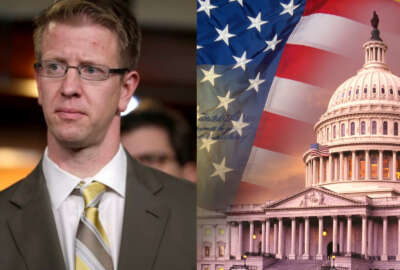SES reforms moving too slowly, SEA says
Leaders of the Senior Executive Association said implementation of Obama administration mandates have been slow. The Senate is likely to introduce bill to reform...
By Courtney Thompson
Federal News Radio
The Obama administration’s initiatives to improve conditions for members of the Senior Executive Service (SES) have not been moving as successfully as they could, according to the association representing this group.
Carol Bonosaro, the president of the Senior Executive Association (SEA), said at a conference last week that the outcome of the President’s Management Council’s “very large” and “ambitious” agenda was unclear.
The PMC’s goal is targeted at improving collaboration between the SES and political officials through senior leadership engagement, career development, recruitment and performance management. But the administration’s decisions to freeze pay and limit bonuses for SESers continue to fuel an adverse relationship between federal executives and the council.
“The SES pay for performance system has been dealt two serious blows,” Bonosaro said in regards to pay freeze and a reduction in eligible senior executives considered for performance awards.
Bonosaro said that the administration is taking a “defensive” stance toward career executives.
One example of this defensive stance, Bonosaro said, is the Office of Personal Management’s decision to remove the presidential rank award winners from their website. She said that SEA will continue to ask OPM for the names of these winners, their accomplishments and the money that they helped the government to save.
Bonosaro said OPM’s decision to remove the names may have stemmed from fear of public criticism over the amount of money spent on performance awards considering the nation’s financial condition. She said OPM’s decision has made the already sour relationship worse.
“I think it’s rather demoralizing when people who have really accomplished tremendous things on behalf of their agencies, and been granted these awards, are essentially told that no one should know what they’ve done or that they’ve won it,” Bonosaro said.
Additionally, the SEA is advocating changes to the PMC’s performance management goals.
Particularly, Bonosaro said that the Qualitative Review Boards (QRBs), which approve executives for the SES, have been under scrutiny for some time. She added that opponents of QRBs argue that it has “no added value” and “only serves to lengthen the hiring process.”
“The association strongly supports the QRB process as a mechanism to prevent politicization of the corps,” Bonosaro said.
To help QRBs, Bonosaro said that the association is requesting that the boards serve as a standing committee or function for more than one day.
Bonosaro said that the SEA is particularly concerned with OPM’s complicated process of the translation of resumes, interviews and accomplishment statements to Executive Core Qualification (ECQs) , which the board reviews to make its decision on who is brought into the SES.
“I think making the process less complex is fine,” she said. “Our bottom line is a concern that the system not be dumbed down; that in the end, there is assurance that those who were selected do meet the Executive Core Qualifications.”
Bonosaro also wants the PMC to focus more on onboarding. She said the goal is to provide coaching and mentoring for a “smoother” transition of new senior executives into the SES and also to ensure their success.
As for military hiring, Bonosaro said that the gradual increase of retired military officers in agencies such as the Department of Defense is a concern, because it is “discouraging to civilians that want to pursue a career development path.”
“No one wants to argue that retired officers should not have an opportunity to serve in these positions; but the question is: how do we improve the training that’s available to the civilians and how do we give them an equal chance when they’re up against, I think, that kind of talent?” she said.
And when it comes to attracting talent, Bonosaro said OPM’s requirement for all agencies to list their executives’ education, skills and experiences will help to improve recruitment as well.
Bonosaro said that SEA is taking advantage of opportunities to give feedback to Congress about SESers’ challenges and possible legislation is in the works.
Bill Bransford, SEA’s general counsel, said opportunities to find common ground with Congress on changes to the SES reform legislation have not been easy.
“We have to deal with congressmen and senators in committees that have concern and responsibility for federal employee issues, who are down-right hostile to federal employees. So it’s become even more of a challenge,” Bransford said.
On the other hand, he added, many in Congress and the SEA agree that senior executives are “underpaid” and that career leadership and accountability are necessary in the workforce.
Bransford said that in the near future Sen. Daniel Akaka (D-Hawaii) will propose the SES Reform Act, which includes language to increase pay, improve career development, employee accountability and diversity. He said Akaka likely will make some changes to the original proposal. Bransford said he expects a companion bill in the House also to be introduced.
Specifically, Bransford that the bill will increase the stature of career executives by limiting the number of non-senior executives in government positions to 15 percent and requiring that certain federal positions be filled by more senior executives.
Another issue about whether to include performance awards in the employee’s high-three annuity calculation still is on the table. Bransford said that Akaka has not yet decided whether he will include this in the language in the bill. He said OPM opposes the change to the SES pay and performance system.
The bill also would guarantee all executives entering the SES receive a minimum pay increase equal to their average general schedule increase and obligate SESers to a three-year certification with advanced notice about its cancellation and renewal.
Bransford said that the bill also would require supervisors give feedback to senior executives if they receive low performance ratings, and a statutory ban on performance-ranking quotas would give all SESers an equal chance to improve performance rankings.
Additionally, the bill likely will include language for OPM to create an executive database to make information on performance awards such as the Presidential Rank awards available to all SESers.
“We are somewhat optimistic that we will be able to push it through again with the idea of promoting career leadership and accountability,” Bransford said.
Courtney Thompson is an intern with Federal News Radio.
RELATED STORIES: ” target=”_blank”> Witnesses offer improvements for SES
(Copyright 2011 by FederalNewsRadio.com. All Rights Reserved.)
Copyright © 2024 Federal News Network. All rights reserved. This website is not intended for users located within the European Economic Area.





